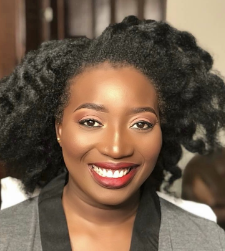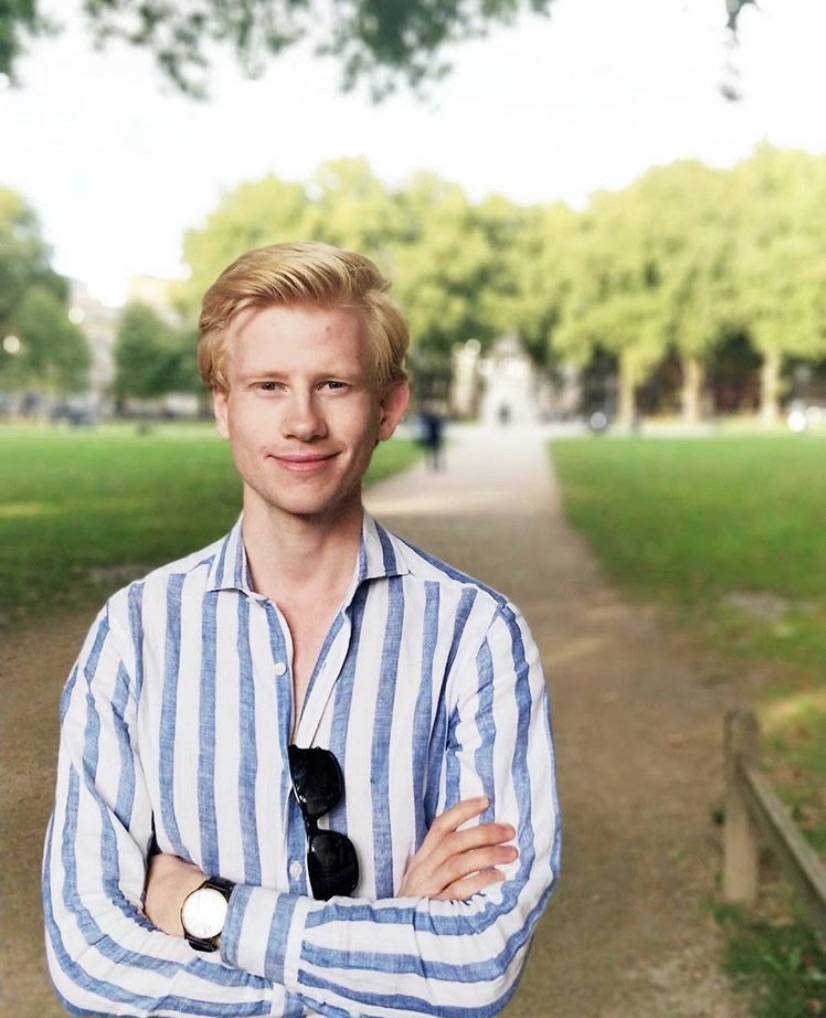Martina Schwarz came up with the idea for a refillable soap that produces no plastic waste while writing her MBA thesis. Her business, Blackmarket, launches this September.
What should you do when you’re worried that the role you are great at is contributing to climate change?
This was the dilemma facing Martina Schwarz, an experienced packaging designer who’s worked with the likes of Unilever, Procter and Gamble and Kellogg’s, when she enrolled on the Central Saint Martins Birkbeck MBA.
“A friction started to develop between my work and my values”, Martina explains. “I decided to write my MBA thesis on packaging and sustainability to incorporate my experience as an insider in the packaging industry with a focus on sustainability.”
Martina began her exploratory thesis with a focus on skincare, but when the pandemic hit, pivoting to handwash seemed like a natural step. In April 2020, Martina left her job to focus full time on her business, Blackmarket, and its first product: a refillable liquid handwash that uses no single-use plastic packaging.
“The first question I always get asked is why ‘Blackmarket’”, she explains, “You could say that the name has negative connotations, but I’ve chosen it so that people will ask questions. Blackmarket symbolises a desire to change the status quo and challenge someone’s thought process about how we design products.”
Blackmarket’s handwash stands out from mainstream refillable competitors through its innovative delivery system. Through her research on the MBA, Martina realised that a lot of personal care and cosmetic products are made mainly of water. By removing the water, she was able to design packaging similar to that of dishwasher tablets or laundry detergents that dissolves in contact with warm water.
“It’s about rethinking how we create packaging”, says Martina, “the film is a thickener that gives the handwash the gel texture that we recognise, so the packaging becomes part of the product. By removing the water at the packaging stage, the product weighs 95% less than its competitors, so transportation emissions are also reduced. Why would we bother to transport something that we can get on tap at home?”

The film packaging of Blackmarket liquid soap is the thickener that gives it a recognisable texture. Image credit – Blackmarket.
Blackmarket’s innovative approach saw Martina receive the UAL Creative Enterprise Award for Innovation in July 2021. She receives £5000 and a mentorship from IBM iX, who sponsored the award.
“The prize money is absolutely incredible – as a startup founder, there are a lot of costs associated with launching a cosmetic product – but the mentorship is as valuable as the prize money if not more,” says Martina. “I’m so pleased that IBM iX is the sponsor – I’m looking forward to using the mentorship programme to focus on behavioural change and the customer journey, making it as easy as possible for people to make sustainable choices.”
While, environmentally speaking, the best choice for handwash is a bar of soap, Martina’s market research found that the majority of consumers aren’t willing to make the switch from liquid soap. The product aims to make it as easy as possible for consumers to make pro-environmental choices.
Blackmarket has launched with a Kickstarter campaign, and Martina has an ambitious vision for the business: “Long term, we want to launch new products like shampoo and conditioner, but also to think about packaging differently. The nature of packaging is to be something that protects, but I really want with Blackmarket to think of that quite differently. I want to change perceptions of packaging to something that is long term, precious, and to be proud of how much you have used it.”
Further Information:













